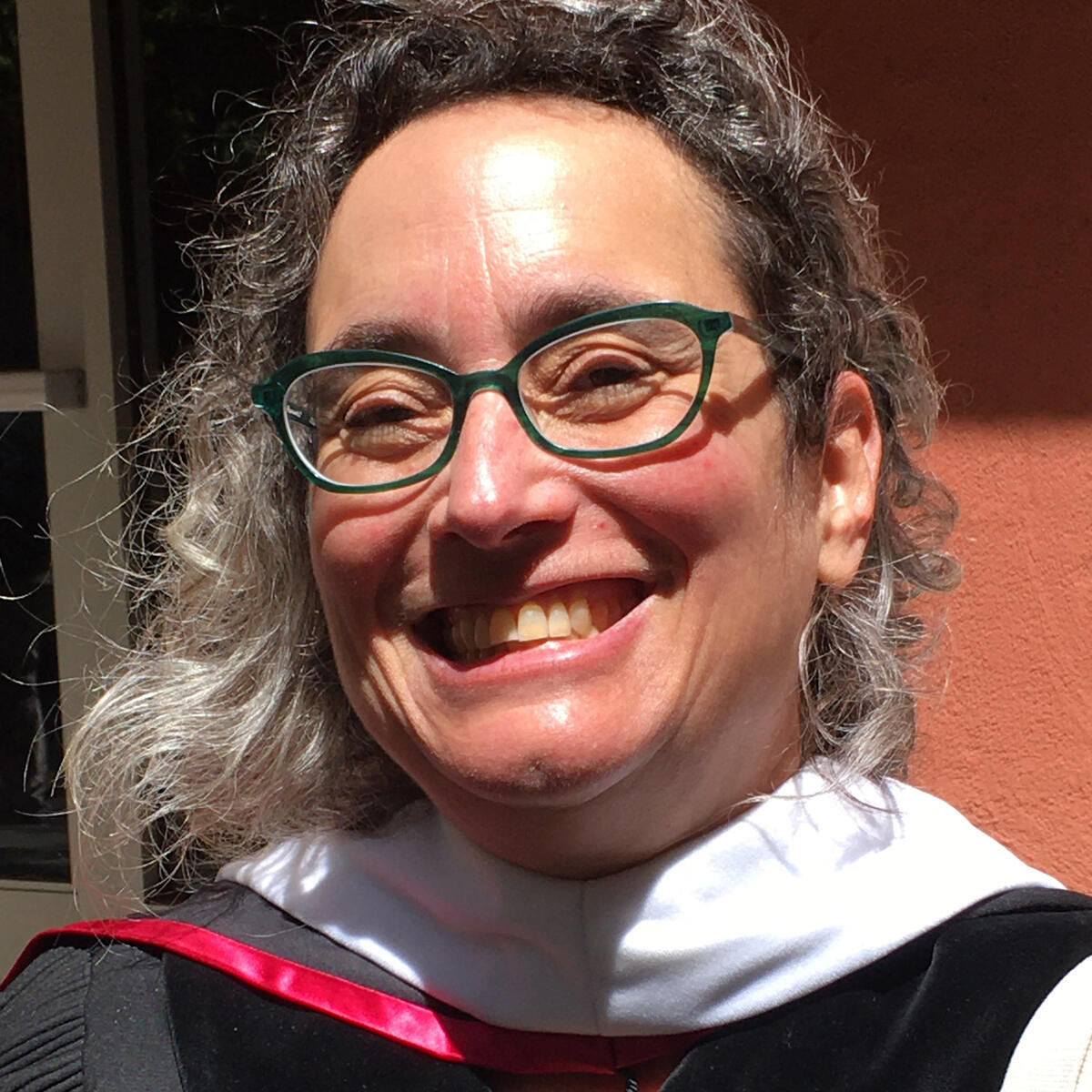Department Chair Estelle Tarica (PhD Comparative Literature, Cornell, 2000) is Professor of Latin American Literatures and Cultures and a former Chair of the Latin American Studies Program at UC Berkeley. Her research and teaching cover a diversity of topics: colonial and modern ideologies of race and nation in Latin America; Indigenous expression in the Andes and Mesoamerica; human rights discourses and memory debates after the Cold War; Jewish Latin America; and Holocaust consciousness in global perspective. Her first book, The Inner Life of Mestizo Nationalism(University of Minnesota Press, 2008), explores the subjective effects of racialized national identity constructions in Mexico, Bolivia and Peru, focusing specifically on ideologies of indigenismo and the works of Jesús Lara, José María Arguedas and Rosario Castellanos. Her second book, Holocaust Consciousness and Cold War Violence in Latin America (SUNY Press, 2022), is about the use of Holocaust memories and terminologies as reference points for authors and activists confronting state violence in Argentina, Mexico and Guatemala from the 1960s to the present. She served as the co-founder and co-director, with Ivonne del Valle, of the Berkeley research group “Mexico and the Rule of Law.” Her articles have appeared in edited volumes and in the journals Chasqui, Revista de Crítica Literaria Latinoamericana, Latin American Literary Review, Journal of Latin American Studies, Política Común and Yale French Studies, among others. She holds faculty affiliations with the Center for Latin American and Caribbean Studies, the Center for Race and Gender, and the Center for Jewish Studies.
Department Chair, Professor
5214 Dwinelle Hall
etarica@berkeley.edu
Office Hours: Tu 3:45-4:45 pm; Th 11-12 pm

Interview
https://newbooksnetwork.com/holocaust-consciousness-and-cold-war-violence-in-latin-america
Books
Articles and Book Chapters
“Viven hasta ahora -- canancamapas causan: el Manuscrito de Huarochirí como puente al futuro.” Co-authored with Ana Lucía Tello and Víctor Quiroz. Abiayalan Pluriverses: Dialogues between Hispanic Studies and Indigenous Studies. Edited by Lauren Beck, Gloria Chacón, and Juan Sánchez Martínez. Amherst College Press, 2024. 135-151.
“La narrativa indigenista.” La narrativa del Perú del siglo XX y XXI. Edited by Jorge Marcone and José Alberto Portugal. Proyecto Historia de las literaturas en el Perú. Directed by Raquel Chang-Rodríguez and Marcel Velázquez Castro. Volumen V. CasaLit, Lima, Peru, 2023. 31-62.
“Beyond the Nation Frame: Rethinking the Presence of Indigenous Literatures in the Spanish-American Novel circa 1950.” Latin American Literature in Transition Volume IV (1930-1980). Volume edited by Amanda Holmes and Par Kumaraswami. Series directed by Mónica Szurmuk. Cambridge University Press. 2023. 182-197.
“Indigenismo.” Oxford Research Encyclopedia: Latin American History. Ed. William H. Beezely. March 2016. latinamericanhistory.oxfordre.com
“Introduction: Radical Politics and/or the Rule of Law in Mexico.” Política Común 7 (2015). Co-authored with Ivonne del Valle.
“Victims and Countervictims in Contemporary Mexico.” Política Común 7 (2015).
“Pacheco, el Holocausto, y la memoria del ‘68.” Sitios de la memoria: México Post 68. Eds. Mónica Szurmuk and Maricruz Castro Ricalde. Santiago: Cuarto Propio, 2014. 127-160.
“La biopolítica en contra de sí: víctimas y contravíctimas en el México contemporáneo.” Heridas abiertas: biopolítica y representación en América Latina. Eds. Mabel Moraña and Ignacio M. Sánchez Prado. Madrid/Frankfurt: Iberoamericana/Vervuert, 2014. 203-224.
“Arguedas durante y después de la violencia: cuatro hipótesis y algunas preguntas.” Arguedas: La dinámica de los encuentros culturales. Tomo III. Eds. Cecilia Esparza, Miguel Giusti, Gabriela Núñez, Carmen María Pinilla, et al. Lima: Fondo Editorial Pontificia Universidad Católica del Perú, 2013. 233-251.
“La ‘mariposa negra’ de Arguedas: figuras afro-peruanas en los Zorros.” Revista de Crítica Literaria Latinoamericana. XXXIX.75 (2012): 113-130.
“The Holocaust Again? Dispatches from the Jewish ‘internal front’ in Dictatorship Argentina.” Journal of Jewish Identities. 5.1 (2012): 89-110.
“Jewish Mysticism and the Ethics of Decolonization in André Schwarz-Bart.” Yale French Studies. 118-119 (2010): 75-90.
“Patrick Chamoiseau’s Creole Conteur and the Ethics of Survival.” International Journal of Francophone Studies. 13.1 (2010): 39-56.
“El indigenismo de Jesús Lara: entre el campo y la ciudad letrada.” Revista de Crítica Literaria Latinoamericana 67 (2008): 237-254.
“Escuchando voces pequeñas: Rosario Castellanos y el nacionalismo indigenista.” Arbor. CLXXXIII.72 (2007): 295-305. [unauthorized and incorrect translation of my work].
“Where You Don’t Belong: On the Construction of Cultural ‘Otherness’ in Leo Spitzer’s Hotel Bolivia.” Journal of Latin American Cultural Studies 15.1 (2006): 17-37.
“El ‘decir limpio’ de Arguedas: la voz bilingüe, 1940-1958.” José María Arguedas: hacia una poética migrante. Ed. Sergio R. Franco. Pittsburgh: IILI, 2006. 23-38.
“La historia de la heterogeneidad.” Memorias de JALLA 2004 Lima: Sextas Jornadas Andinas de Literatura Latinoamericana Vol III. Ed. Carlos García-Bedoya. Lima: CELACP, 2006. 1915-1927.
“Viajes a las rocas y las ruinas: visiones del valle de Inkallajta a la sima fecunda.” Construcción y poética del imaginario boliviano. Ed. Josefa Salmón. La Paz: Plural Editores, 2005. 83-95.
“Fragments of a Dream: Che’s Image in Contemporary Bolivian Narrative.” Chasqui. 32.2 (2003): 96-114.
“In the Land of Broken Jugs: Francisco Rojas González and Mexican Indigenismo at Mid-twentieth Century.” Latin American Literary Review 59 (2002): 100-121.
“Entering the Lettered City: Jesús Lara and the Formation of a Quechua Literary Patrimony in the Andes.” Morrison Library inaugural address series no. 21. Berkeley, CA: Doe Library, University of California, 2001.
“El nacimiento del mestizo: la imaginación indigenista de Francisco Rojas González.” Pensamiento y crítica: Los discursos de la cultura hoy. Eds. Javier Durán, Rosaura Hernández Monroy, and Manuel F. Medina. Mexico City: Universidad Estatal de Michigan, Universidad de Louisville, Centro de Cultura Casa Lamm, 2000. 289-300.
